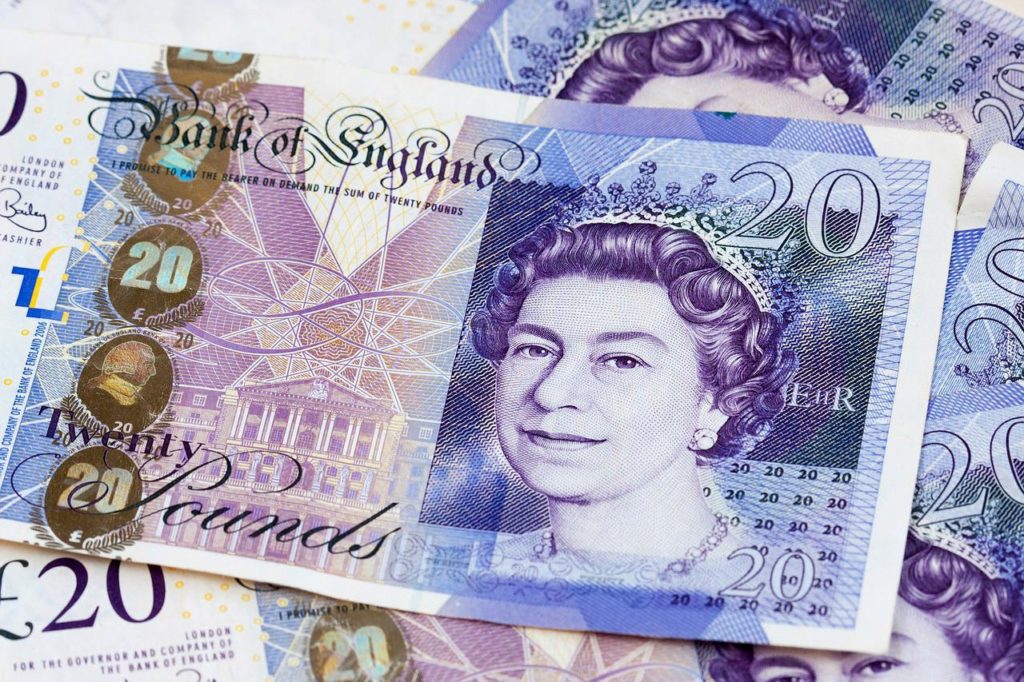Pound Sterling (GBP) monthly average is currently at a two year low against the US Dollar (USD), having slipped by 15% in the last year. Knowing how to invest when Pound Sterling is weak is critical in such times.
A depreciating currency will cause the value of foreign assets to appreciate in GBP terms. This provides a soft hedge against the significant tumble in US equity benchmarks since the start of 2022.
This has helped protect UK investors from the worst effects of rising expectations of rate rises abroad. But this comes as a poisoned chalice.
Investing in foreign assets after a sudden depreciation in Pound Sterling means accepting a lot of foreign currency downside risk. To illustrate: if the S&P 500 index holds its current value in Dollar terms, but the Sterling returns to February 2022 levels, this will lead to a 15% loss in the GBP value of those holdings. The same USD value will convert into fewer Pounds if each Pound is more valuable.
This leaves Brits in a prickly situation. Investing in a range of foreign assets is recommended by advisors to reduce risk through diversification. Yet the apparent FX risk inherent in foreign equities may now deter UK investors from looking abroad.
Here are our thoughts on how to think through this dilemma. This is not financial advice.

How to invest with a weak pound
- FX risk is harder to escape than you think
To avoid FX volatility in your equity investments, you’ll focus on shares and bonds denominated in GBP. But the pricing of instruments doesn’t tell the whole story.
What matters is the underlying transaction currency of the cash flows that occur in the businesses themselves.
For example, the Vanguard LifeStrategy 100% Equity Funds offered by Vanguard Investor are priced in GBP, but under the hood, these funds are converting their cash into USD and other foreign currencies to purchase either foreign funds or foreign assets with that cash. Therefore FX risk is still being taken at some point in the process. As the ultimate owner of the units in the top fund – you are bearing that risk.
Dive even deeper and you’ll find that many UK firms such as Vodafone and Shell conduct their business outside the UK. This means that their own financial statements – expressed in GBP, will see a financial hit if the pound strengthens and those foreign earnings are now worth less in the reporting currency.
The bottom line is that FX risk is incredibly difficult to escape in such an internationalised economy. Only investments in UK firms with UK customers and wholly UK supply chains will be shielded from swings in the value of currency pairs. This set of criteria is so strict that a company that ticks this box is a very rare beast indeed. So rare, that by constraining yourself to all-UK companies, you may be excluding 99% of investment-grade equities. This would be terribly restrictive.
- Currencies pass through longer cycles than the stock market
Back in 2006, the US Dollar was worth just 50p and the Pound was very strong. In other words, a pound could buy $2. Today, at the time of writing, a pound is worth only $1.25.
In the intervening period, the two nations on either side of this currency pairing have navigated a financial crisis, several wars and a global pandemic. Their stock markets have experienced multiple bull and bear phases, and their economies have switched between growth and recession no less than four times.
And yet the exchange rate differential has not gyrated back and forth in a parallel fashion.
It is better to think of currencies as following their own independent super cycle. Just as we wouldn’t recommend actively jumping in and out of equity cycles, (as known as timing the market), we’d be even less keen to make directional bets that play out over decade-long time horizons. We can leave that to forex traders.
The takeaway from this is that it could be folly to make changes to your equity investment portfolio on the basis of a prediction of FX market movements over the long term.
Knowing how to invest with a weak Pound Sterling is less about being able to predict the future and more about being able to accept the risk that FX will always reek upon equity investments.